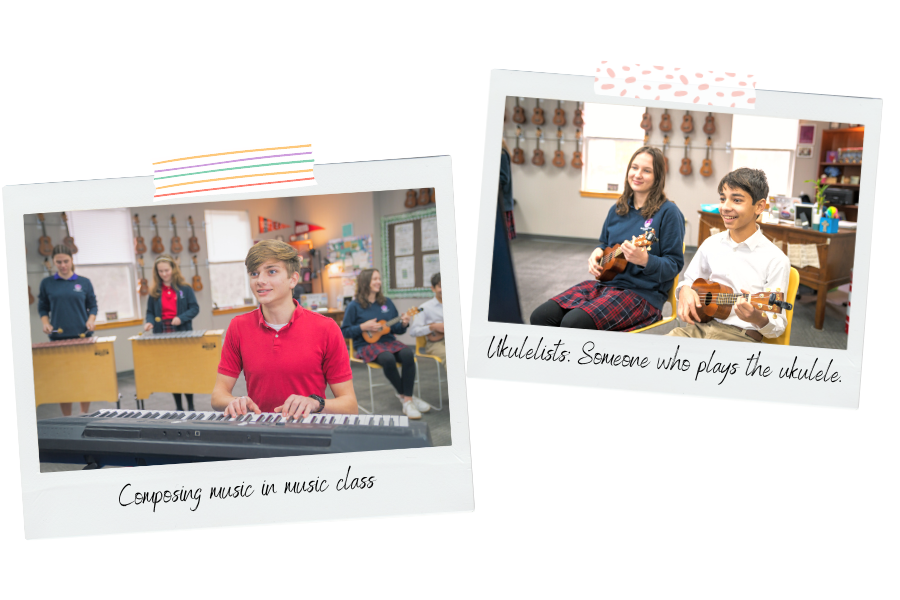
Our Music Teacher, Abbi French, shares how music is an important part of who God created our students to be and what He created our students to do.
At Faith Christian School, we teach with the understanding that our students are made in the image of God. Thus, when we are training our students in music, we are not necessarily training them to become career musicians; rather, we are training them in an aspect of who they truly are—image bearers of God. Throughout Scripture, we see the importance of music in the life of the believer. Psalm 66:4 says, “All the earth worships you and sings praises to you; they sing praises to your name.” As people created in the image of God, we sing praises to Him in a way that both joins with all creation and is distinct from it. Music is an important part of who God created us to be and what He created us to do.
With this in mind, we have determined that one of the overarching goals of the music program is joyful music literacy. A program focused on musical literacy moves students away from being receptacles of music to being doers and creators of music. We are focused on training students to understand what music is and teaching them to make music themselves. In his book Raise the Song: A Classical Christian Guide to Music Education, author and music teacher Jarrod Richey writes: “If we are able to give our students seventy songs, they will possess seventy songs and an appreciation for those songs. But if we teach them to read music, then the whole storehouse of psalms and hymns is open to them.”
In the Lower School, students learn the basics of reading rhythms and solfège.* Throughout their time in the Lower School, students read, audiate**, compose, and improvise vocally and instrumentally. While the voice is our primary focus, we believe it is important for students to develop their musical skills on non-pitched percussion instruments and Orff instruments (xylophones and metallophones).
In Middle School, students develop music literacy through the lens of music history. Understanding music in its historical context is an important part of musicianship. In Middle School, as the students learn about eras of music history, they sing and play music from those time periods. They also have the opportunity to compose music in the style of the music they are studying.
In Upper School, students take the skills they have learned in Lower and Middle School and apply them to learning to play the ukulele. This allows the students to simultaneously sing and play an instrument, read chord symbols (as well as traditional notation), make music individually and as an ensemble, and compose music.

Singing is foundational in our music curriculum, from Junior Kindergarten through 12th grade. As a teacher, it is my hope that all my students will come to saving faith in Jesus Christ. As I am training them in music, then, I am also training them in the skills they will need to be lifelong worshippers. In their book Sing! How Worship Transforms Your Life, Family, and Church, Keith and Kristyn Getty write: “We are a singing people because it is how God has created us. It’s what we do. And when we do, we’re simply joining in with what the rest of creation is doing.” When we sing praises to God, we not only glorify Him, but we encourage those around us to join in the song as well.
As we train students in music, we do so with the understanding and hope that we are developing lifelong worshippers of God. When students study beautiful music here at Faith Christian School, they see and learn about God, who makes all beautiful things. And as they learn about God, who fills the earth with beauty, we pray that their hearts will be stirred to love Him and follow Him.
- Abbi French, Music Teacher
*In music, solfège or solfeggio, also called sol-fa, solfa, solfeo, among many names, is a music education method used to teach aural skills, pitch, and sight-reading of Western music. Solfège is a form of solmization, though the two terms are sometimes used interchangeably.
**Audiation is the foundation of musicianship. It takes place when we hear and comprehend music for which the sound is no longer or may never have been present. One may audiate when listening to music, performing from notation, playing “by ear,” improvising, composing, or notating music.


-1.png?width=296&height=50&name=Back%20To%20All%20Stories%20(1)-1.png)